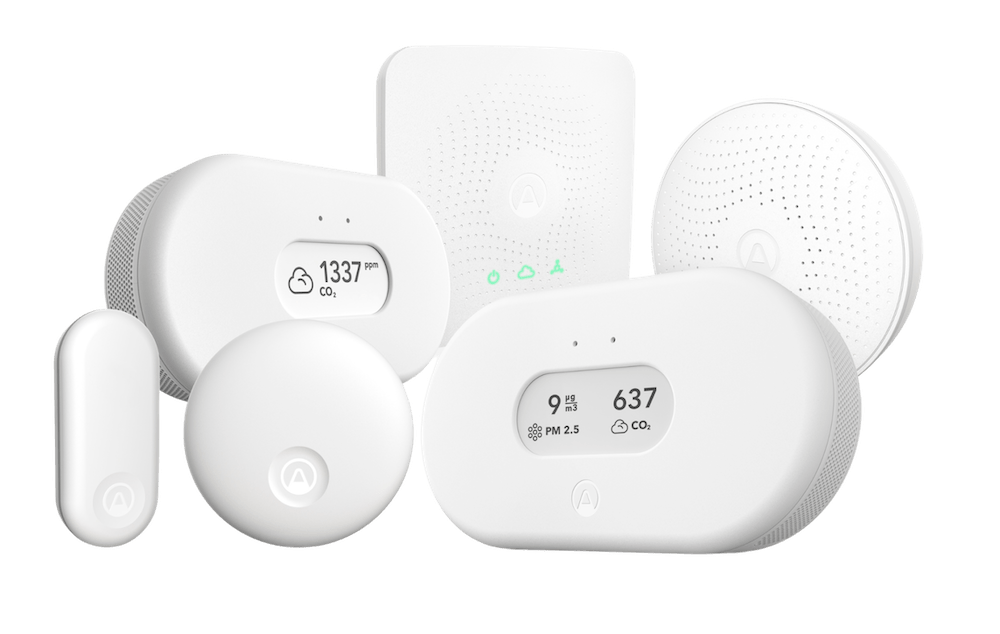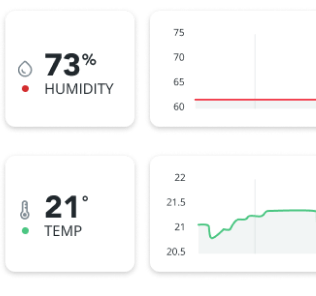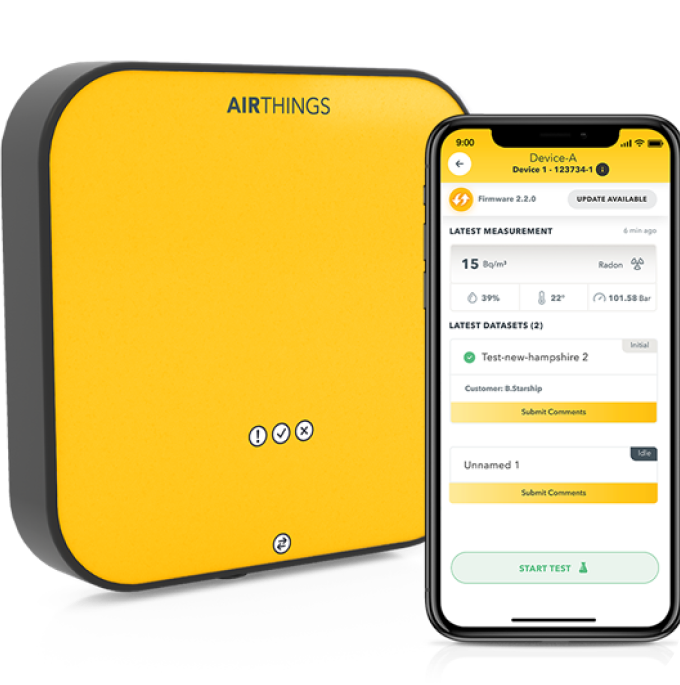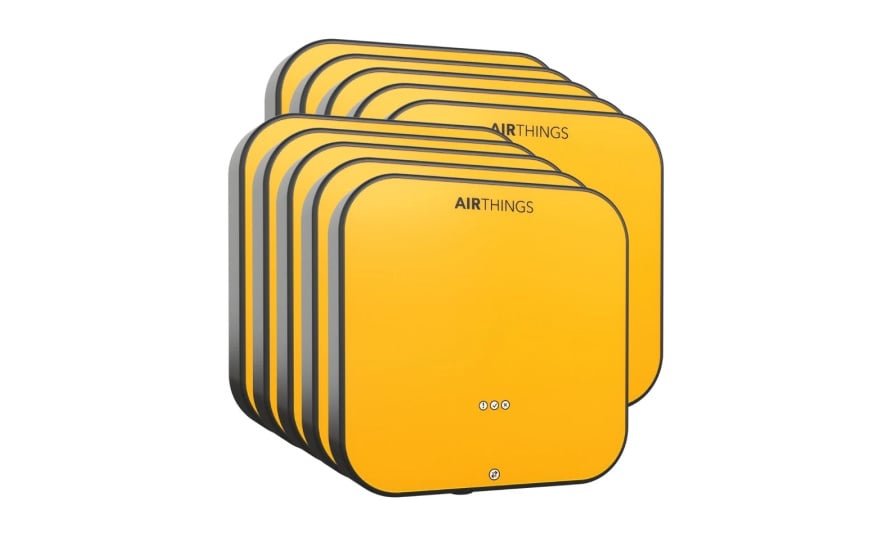Do you sometimes wonder why you struggle to sleep? The key to a good night’s rest could be improving indoor air quality in your bedroom.
Most of us are all too familiar with the feeling. You’ve had a busy day and you’re tired. You’re looking forward to a good rest and the chance to wake up refreshed, but try as you might, you can’t get to sleep.
You’ve probably heard much of the usual advice that specialists offer for this scenario. Choose a comfortable mattress and pillow, avoid computer or phone screens before bedtime or get some fresh air. The link between indoor air quality and sleep is less frequently discussed.
Yet, there’s a proven connection between high levels of carbon dioxide and sleep disruption. The temperature and humidity in your room are other important factors. Getting the conditions right and improving indoor air quality could be your first step to sleeping better and waking up properly rested in the morning.
Sleep, safety and comfort
A good night’s sleep is vital for our health and wellbeing. Sleep helps our bodies recover physically, encourages better mental health, and improves our performance levels the next day, whether we’re working, studying, or enjoying leisure time.
Sleep plays an important role in healing and repairing your heart and blood vessels. For that reason, if your sleep has been disrupted over a long period, it can lead to an increased risk of serious conditions like high blood pressure, stroke, heart disease, kidney disease, and diabetes.
Your ability to function safely and productively could be compromised too, even if you’re sleeping for just one or two hours less. Scientists who study the subject have shown that people perform better in logic tests when they’ve had a proper night’s sleep.

Lack of sleep can cause some people to ‘microsleep’ during the day. That means that, for a few seconds, you drift off, without being able to control or even notice the phenomenon. This can be dangerous, particularly if you’re driving or operating machinery.
Ideally, an adult should be getting 7-8 hours of good-quality sleep each night. Children and teenagers need more, depending on their exact age.
When you sleep well, you feel better, tend to be healthier and function more effectively. Having excellent indoor air quality in bedrooms is one way to ensure that you get a great night’s sleep.
How carbon dioxide affects sleep
If your bedroom is poorly ventilated, CO2 is likely to build up in a way that makes you less comfortable, and even damages your health. Research shows that concentrations of carbon dioxide when people are sleeping are between 3 to 5 times higher in bedrooms where the window is shut.
People tend to feel that the air is fresher when they open a bedroom window, or use a fan, and there’s evidence that suggests they’re likely to fall asleep more easily in a properly ventilated room. In the scientists’ experiments, they found that ventilation helped subjects to feel better rested and more alert, after their night’s sleep.
Carbon dioxide is also linked to conditions like sleep apnea, and some experts now believe that CO2 triggers neurons (brain cells) that can rouse you from your sleep. If you have difficulty sleeping, it’s unpleasant and upsetting to be jolted awake just as you begin to drift off.
If you think CO2 is affecting your night’s rest then it’s important to get air circulating around your bedroom. Opening a window is a great way to deal with the problem. If that’s likely to be too noisy, fumy, or hot, then turn on the air conditioning, open a door, install a fan, or open the vents in your central air system.
Getting the temperature right
It’s no great revelation that temperature and sleep are closely connected. We know instinctively that we’ll sleep poorly in a hot, stuffy room or if it’s too cold — but the science is a bit more complicated than that.
Experts say that when you fall asleep, your brain expects your body temperature to drop a little. It makes sense because you’re moving less and thinking less when you're at rest.
When your body temperature isn’t in this expected range — if the room becomes too hot or too cold — then you’re more likely to wake up. Most of us will recognize that feeling of waking up uncomfortably warm or just a little chilly.
Typically, the ideal temperature for sleep is between 16 to 18°C (60-65°F). Intuitively, this might seem a little cool, but it’s easier for our bodies to manage the small drop in temperature in a cooler room.
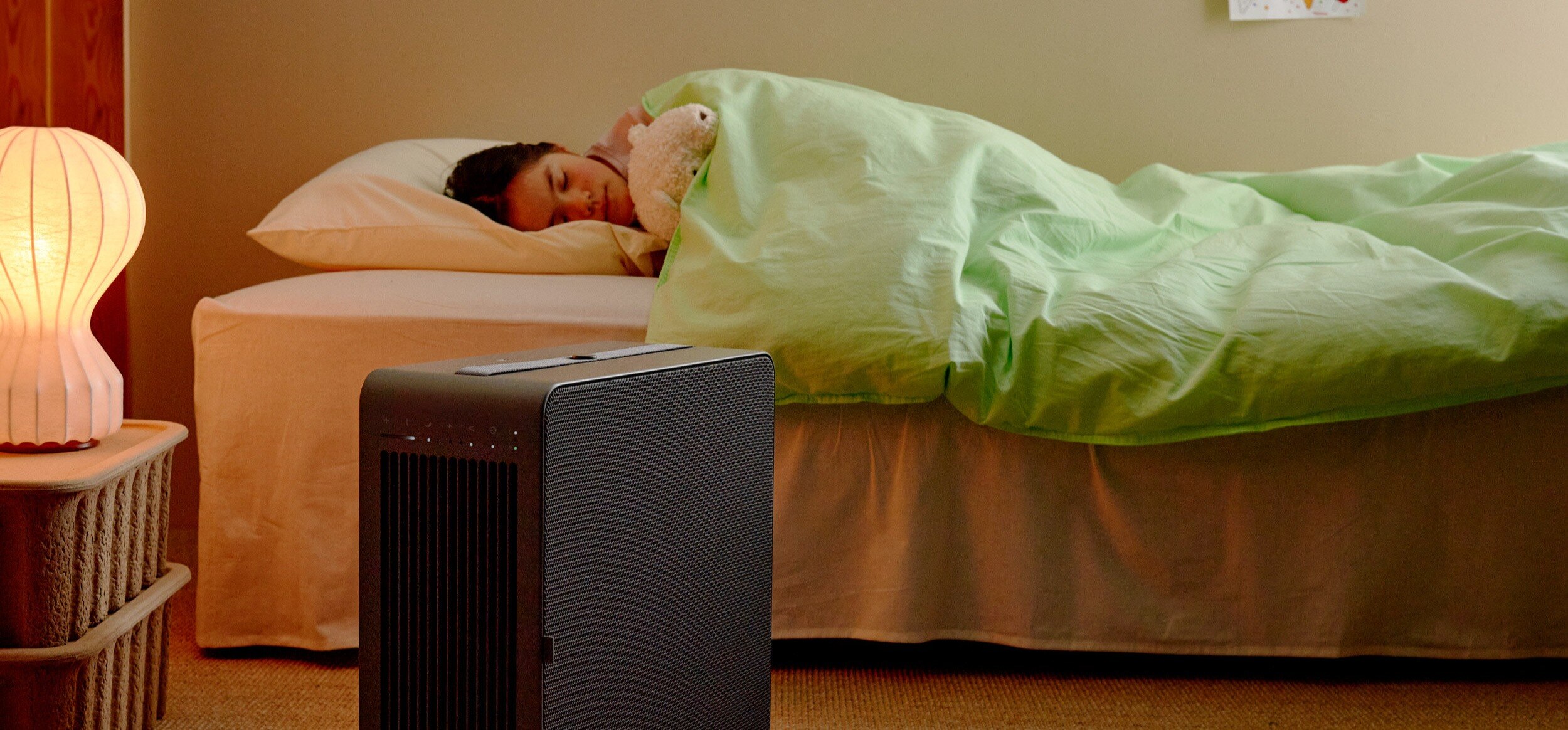
If the temperature is over 24°C (71°F), you’re likely to be more restless. When the thermometer drops to 12°C (53°F), you may experience difficulty falling asleep.
In warm weather, you’ll likely need to open windows or use ventilation to keep your bedrooms at an ideal temperature. Bear in mind that older people or children may need their rooms to be a little warmer. During the winter, it’s important to make sure you’ve got the right heating settings.
Remember, central heating thermostats only set an average temperature for your home or for areas of your home, and this may vary in different bedrooms. You’ll need to record the temperature in individual bedrooms to get the whole picture.
Airborne chemicals (VOCs) and sleep - invisible pollutants in the bedroom
Airborne chemicals, or VOCs, are gases and odors given off by various toxins and chemicals contained in everyday products. Some are natural, like our breath, whereas some are bad, like benzene.
They can cause short-term health issues by irritating your eyes, nose, or throat, aggravating respiratory conditions, and causing itchy skin.
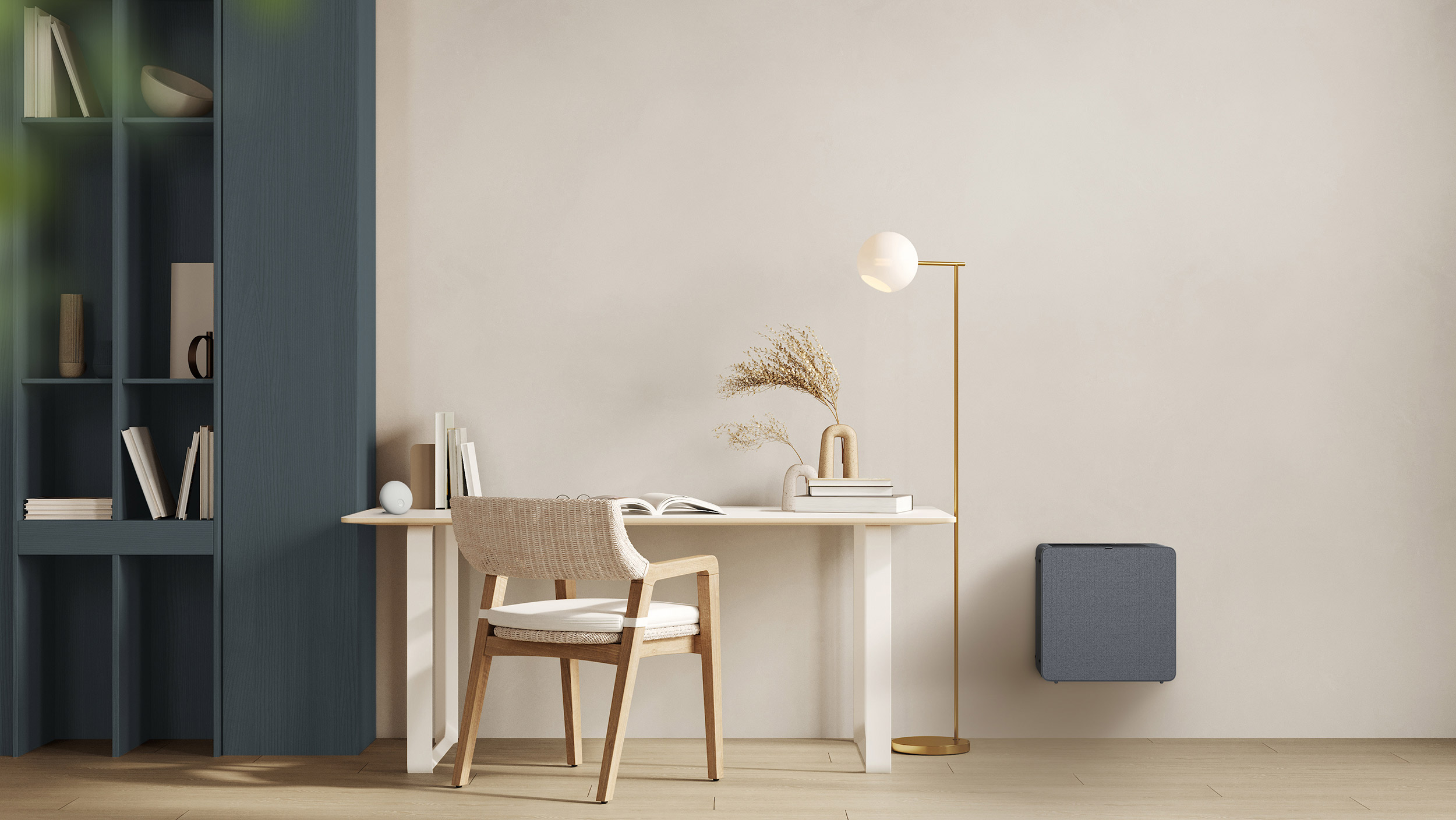
Items like carpets and furniture could be emitting VOCs in your home, while cleaning products and paints are other likely culprits. However, in the bedroom, some new mattresses have been found to release gases like acetaldehyde, benzene, and formaldehyde. In particular, people who breathe in high levels of benzene may very quickly develop symptoms like drowsiness, dizziness, irregular heartbeat, headaches, tremors, confusion, unconsciousness and, in severe cases, death. Even low levels of formaldehyde are associated with irritated eyes and nose, increased risk of asthma, and allergies, while higher levels are thought to worsen eczema and change lung function.
The emission of airborne chemicals (VOCs) is exacerbated by body heat, and experts are particularly concerned about the chemicals’ potential to damage children’s health12.
Thankfully, there are ways to limit your exposure to volatile organic compounds. Look out for low-VOC products whenever you’re shopping. Always air out new mattresses and furniture, and consider buying used furniture. Most of all, if you’re concerned about excess airborne chemicals (VOCs) and sleep, ventilate the room properly and invest in an air purifier.
That ‘brand new’ odor can be a giveaway, so make sure you air out your bedroom thoroughly if you detect that smell.
Monitor indoor air quality for better rest, sleep, and comfort
If you want optimum indoor air quality for better sleep, there’s no substitute for understanding the air quality in your home properly. Knowledge really is power.
By installing indoor air quality monitors, you’ll gain a detailed source of real-time and historical information that includes all the important air quality metrics that impact your ability to get a good night’s sleep.
An Airthings monitor measures temperature, humidity, particulate matter, carbon dioxide levels, and VOCs, alerts you to any problems with indoor air, and provides insights into how to put things right. In addition, the sensors measure radon, an invisible gas that is a major cause of lung cancer.
The monitors feature long-lasting battery technology and operate wirelessly. You can be up and running quickly, and you can access the information remotely through the user-friendly dashboard or the smartphone app.
The contaminants and conditions that affect sleep also have an impact on your family’s overall wellbeing, productivity, and happiness. So, an indoor air quality monitor for better sleep will not only improve the quality of your night’s rest, it will also contribute to a happier lifestyle for your home.
Key takeaways
- Getting the conditions in your bedroom right and improving indoor air quality could be key to getting a great night’s sleep.
- Sleep helps our bodies recover, encourages better mental health, and improves our performance levels the next day, whether we’re working, studying, or enjoying leisure time.
- Carbon dioxide builds up as we sleep and can trigger a response from our bodies that wakes us up.
- Most people sleep best when the temperature is 16 to 18°C (60-65°F). Much hotter and it can make you restless. Cooler, and you could struggle to drop off.
- Mattresses can emit volatile organic compounds (VOCs) that create a potential health risk.
- An indoor air quality monitor gives you important information about the air you breathe in your bedroom and its potential links to sleep. Knowledge is power!



